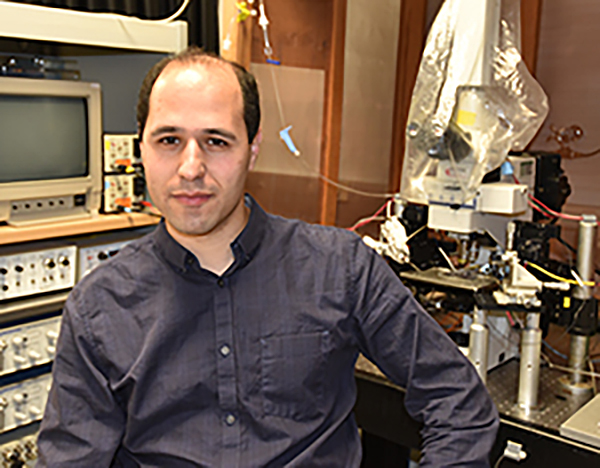Translation-Independent Functions of FMRP in Excitability, Synaptic Transmission and Plasticity

Vitaly Klyachko, PhD
Principal Investigator
Ziv Rotman, PhD
FRAXA Fellow
Pan-Yue Deng, PhD
FRAXA Fellow
Washington University
St. Louis, MO
2012-2013 Grant Funding: $140,000
Summary
Dr. Vitaly Klyachko and team explored STP (short-term plasticity) in Fragile X, namely looking at presynaptic calcium dynamics as a major underlying cause of the STP defects.
The Science
While long-term plasticity (LTP) is thought to play an important role in learning and memory and has been studied extensively in FX, short-term plasticity (STP) is widely believed to control information processing, working memory, and decision making. Dr. Klyachko explored STP in FX, namely looking at presynaptic calcium dynamics as a major underlying cause of the STP defects. Because their early data indicate that the mechanism has a cell-autonomous presynaptic origin and do not depend on the activation of Gp1 mGluRs or protein translation, this suggests a major new locus of FX pathology. Dr. Klyachko tested if specific molecular targets can rescue STP and information processing defects in the neurons of FX knock-out mice.
Along with this work, the team discovered another clue to the Fragile X syndrome mystery along with researchers led by Dr. Stephen Warren at Emory University: Rare case uncovers missing clue to Fragile X

